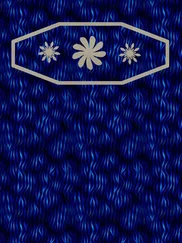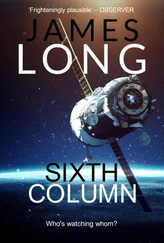Robert Heinlein - Sixth Column
Здесь есть возможность читать онлайн «Robert Heinlein - Sixth Column» весь текст электронной книги совершенно бесплатно (целиком полную версию без сокращений). В некоторых случаях можно слушать аудио, скачать через торрент в формате fb2 и присутствует краткое содержание. ISBN: , Жанр: Фантастика и фэнтези, на английском языке. Описание произведения, (предисловие) а так же отзывы посетителей доступны на портале библиотеки ЛибКат.
- Название:Sixth Column
- Автор:
- Жанр:
- Год:неизвестен
- ISBN:0-671-72026-0
- Рейтинг книги:3 / 5. Голосов: 1
-
Избранное:Добавить в избранное
- Отзывы:
-
Ваша оценка:
- 60
- 1
- 2
- 3
- 4
- 5
Sixth Column: краткое содержание, описание и аннотация
Предлагаем к чтению аннотацию, описание, краткое содержание или предисловие (зависит от того, что написал сам автор книги «Sixth Column»). Если вы не нашли необходимую информацию о книге — напишите в комментариях, мы постараемся отыскать её.
Sixth Column — читать онлайн бесплатно полную книгу (весь текст) целиком
Ниже представлен текст книги, разбитый по страницам. Система сохранения места последней прочитанной страницы, позволяет с удобством читать онлайн бесплатно книгу «Sixth Column», без необходимости каждый раз заново искать на чём Вы остановились. Поставьте закладку, и сможете в любой момент перейти на страницу, на которой закончили чтение.
Интервал:
Закладка:
Which brought to mind a new worry: if he was to maintain any pretense of military purpose, he would have to have some sort of a service of information.
He had been too busy in getting them all back to work to think about it, but he would have to think about it tomorrow, he told himself, then continued to worry about it.
An intelligence service was as important as a new secret weapon -- more important; no matter how fantastic and powerful a weapon might be developed from Dr. Ledbetter's researches, it would be no help until they knew just where and how to use it against the enemy's weak points. A ridiculously inadequate military intelligence had been the prime characteristic of the United States as a power all through its history. The most powerful nation the globe had ever seen -- but it had stumbled into wars like a blind giant. Take this present mess: the atom bombs of PanAsia weren't any more powerful than our own but we had been caught flat-footed and had never gotten to use a one.
We had had how many stock-piled? A thousand, he had heard. Ardmore didn't know, but certainly the PanAsians had known, just how many, just where they were. Military intelligence had won the war for them, not secret weapons. Not that the secret weapons of the PanAsians were anything to sneer at particularly when it was all too evident that they really were "secret." Our own so-called intelligence services had fallen down on the job.
O. K., Whitey Ardmore, it's all yours now! You can build any sort of an intelligence service your heart desires -- using three near-sighted laboratory scientists, an elderly master sergeant, two kitchen privates, and the bright boy in person. So you are good at criticizing -- "If you're so smart, why ain't you rich?"
He got up, wished passionately for just one dose of barbiturate to give him a night's sleep, drank a glass of hot water instead, and went back to bed.
Suppose they did dig up a really powerful and new weapon? That gadget of Ledbetter's certainly looked good, if they could learn to handle it but what then? One man couldn't run a battle cruiser -- he couldn't even get it off the ground -- and six men couldn't whip an empire, not even with seven-league boots and a death ray. What was that old crack of Archimedes? "If I had a lever long enough and a fulcrum on which to rest it, I could move the Earth."
How about the fulcrum? No weapon was a weapon without an army to use it.
He dropped into a light sleep and dreamed that he was flopping around on the end of the longest lever conceivable, a useless lever, for it rested on nothing. Part of the time he was Archimedes, and part of the time Archimedes stood beside him, jeering and leering at him with a strongly Asiatic countenance.
CHAPTER TWO
Ardmore was too busy for the next couple of weeks to worry much about anything but the job at hand. The underlying postulate of their existence pattern -- that they were, in fact, a military organization which must some day render an accounting to civil authority -- required that he should comply with, or closely simulate compliance with, the regulations concerning paperwork, reports, records, pay accounts, inventories, and the like. In his heart he felt it to be waste motion, senseless, yet as a publicity man, he was enough of a jackleg psychologist to realize intuitively that man is a creature that lives by symbols. At the moment these symbols of government were all important.
So he dug into the regulation manual of the deceased paymaster and carefully closed out the accounts of the dead, noting in each case the amounts due each man's dependents "in lawful money of the United States," even while wondering despondently if that neat phrase would ever mean anything again. But he did it, and he assigned minor administrative jobs to each of the others in order that they might realize indirectly that the customs were being maintained.
It was too much clerical work for one man to keep up. He discovered that Jeff Thomas, the cook's helper, could use a typewriter with facility and had a fair head for figures. He impressed him into the job. It threw more work on Graham, who complained, but that was good for him, he thought -- a dog needs fleas. He wanted every member of his command to go to bed tired every night.
Thomas served another purpose. Ardmore's highstrung disposition required someone to talk to. Thomas turned out to be intelligent and passively sympathetic, and he found himself speaking with more and more freedom to the man. It was not in character for the commanding officer to confide in a private, but he felt instinctively that Thomas would not abuse his trust -- and he needed nervous release.
Calhoun brought up the matter which forced Ardmore to drop his preoccupation with routine and turn his attention to more difficult matters. Calhoun had called to ask permission to activate Ledbetter's apparatus, as modified to suit their current hypotheses, but he added another and embarrassing question.
"Major Ardmore, can you give me some idea as to how you intend to make use of the 'Ledbetter effect'?"
Ardmore did not know; he answered with another question. "Are you near enough to results to make that question urgent? If so, can you give me some idea of what you have discovered so fax?"
"That will be difficult," Calhoun replied in an academic and faintly patronizing manner, "since I am constrained not to speak in the mathematical language which, of necessity, is the only way of expressing such things --"
"Now, Colonel, please," Ardmore broke in, irritated more than he would admit to himself and inhibited by the presence of Private Thomas, "you can kill a man with it or you can't and you can control whom you kill or you can't."
"That's an oversimplification," Calhoun argued. "However, we think that the new set-up will be directional in its effect. Dr. Brook's investigations caused him to hypothecate an asymmetrical relationship between the action and organic life it is applied to, such that an inherent characteristic of the life form determines the effect of the action as well as the inherent characteristics of the action itself. That is to say, the effect is a function of the total factors of the process, including the life form involved, as well as the original action --"
"Easy, easy, Colonel. What does that mean as a weapon?"
"It means that you could turn it on two men and decide which one it is to kill -- with proper controls," Calhoun answered testily. "At least, we think so. Wilkie has volunteered to act as a control on it, with mice as the object."
Ardmore granted permission for the experiment to take place, subject to precautions and restrictions.
When Calhoun had gone, his mind returned at once to the problem of what he was going to do with the weapon -- if any. And that required data that he did not have. Damn it! -- he had to have a service of information; he had to know what was going on outside.
The scientists were out, of course. And Scheer, for the scientific staff needed his skill. Graham? No, Graham was a good cook, but nervous and irritable, emotionally not stable, the very last man to pick for a piece of dangerous espionage. It left only himself. He was trained for such things; he would have to go.
"But you can't do that, sir," Thomas reminded him.
"Huh? What's that?" He had been unconsciously expressing his thoughts aloud, a habit he had gotten into when he was alone, or with Thomas only. The man's manner encouraged using him for a sounding board.
"You can't leave your command, sir. Not only is it against regulations, but, if you will let me express an opinion, everything you have done so far will fall to pieces."
"Why should it? I'll be back in a few days."
"Well, sir, maybe it would hold together for a few days -- though I'm not sure of that. Who would be in charge in your absence?"
Читать дальшеИнтервал:
Закладка:
Похожие книги на «Sixth Column»
Представляем Вашему вниманию похожие книги на «Sixth Column» списком для выбора. Мы отобрали схожую по названию и смыслу литературу в надежде предоставить читателям больше вариантов отыскать новые, интересные, ещё непрочитанные произведения.
Обсуждение, отзывы о книге «Sixth Column» и просто собственные мнения читателей. Оставьте ваши комментарии, напишите, что Вы думаете о произведении, его смысле или главных героях. Укажите что конкретно понравилось, а что нет, и почему Вы так считаете.











